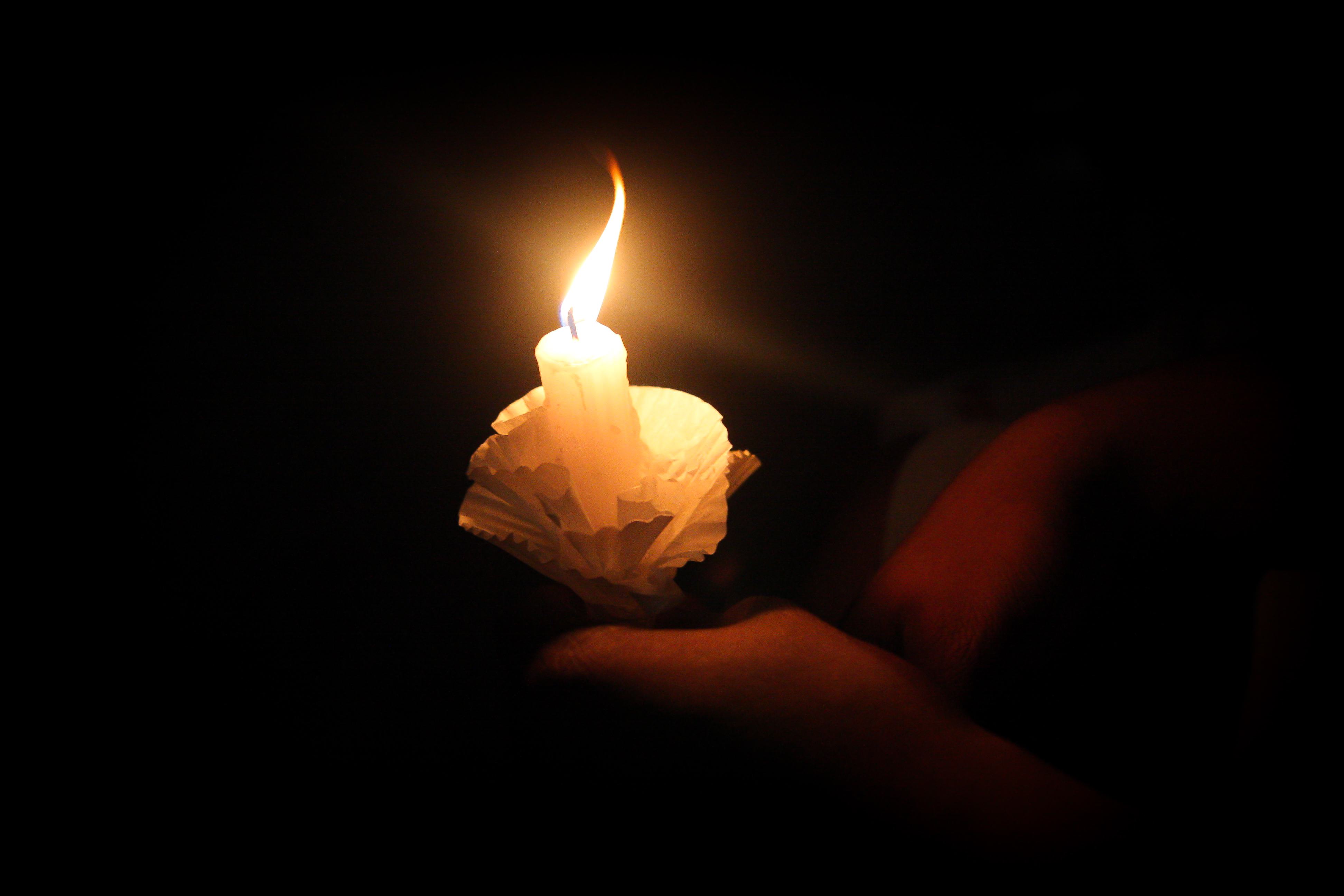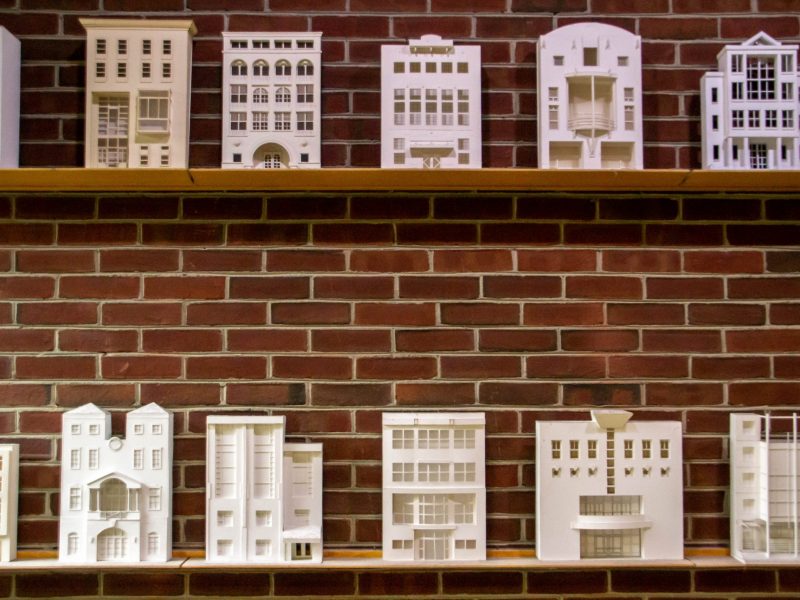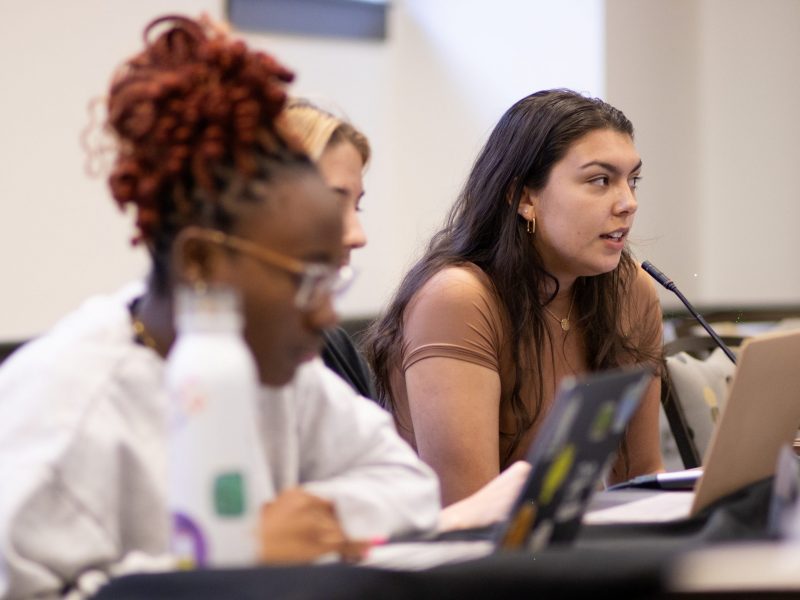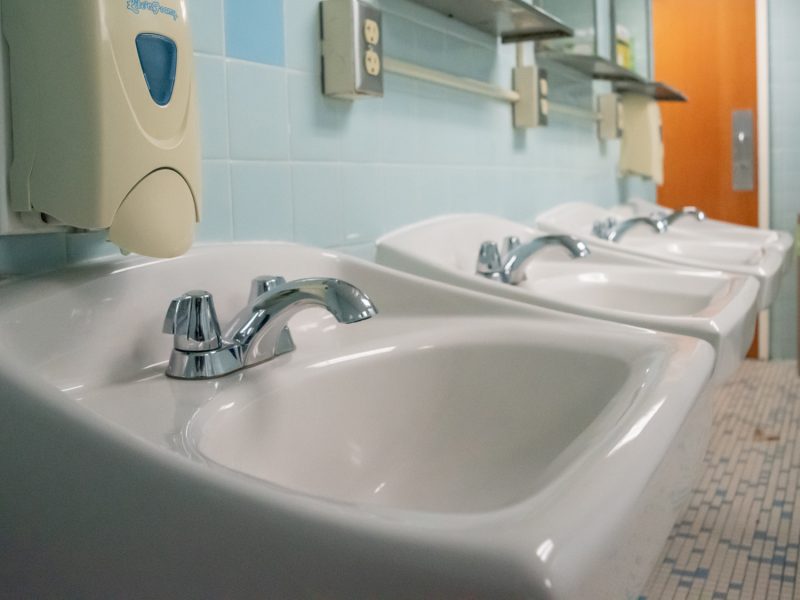By Samuel Antezana and Mina Haq
For The Diamondback
Juan Ramon Guerrero. Javier Jorge-Reyes. Yilmary Rodriguez Solivan.
A nervous silence hung over the crowd as they gathered outside the Nyumburu Cultural Center, listening to a group read the names of the 49 people killed at a gay nightclub in Orlando last month. Faces of all colors lined the rows — black, white, brown — but all shared the same impression: There was no mirth in the air that evening.
“Does anyone want to say anything?” one of the organizers at the front asked. No response.
These were the faces of a tired nation, and on Tuesday night, all they could do was feel.
Grief for their fallen brothers and sisters who were gunned down. Rage at the violation of sacred spaces that were supposed to be havens from a prejudiced world. Fear of what would be next.
In the midst of recent tragedies, the University of Maryland and campus organizations including Political Latinxs United for Movement and Action in Society and the Black Student Union have created gatherings to provide students, faculty and staff with support. They discuss topics like inclusivity and intersectionality while allowing safe spaces for self-reflection.
“Sometimes we can’t talk to our families about these types of issues very well,” said Tricia Homer, an instructional designer at the Robert H. Smith School of Business and a recruited facilitator of a Wednesday evening event focused on dialogue following a three-day stretch of constant violence.
“Everything right now that’s going on, it kind of worries me, you know?” said Elizabeth Garcia, a senior behavioral and community health major, at the vigil. “You don’t know what could happen.”
Tuesday’s vigil wasn’t the first for Erica Puentes. As she sat surrounded by friends in the thick of the crowd, the senior African-American studies major thought about another one she went to with her sorority sister, who is black and queer, at Stonewall.
Something her friend said after that vigil struck her:
“It was almost like I was at my own funeral.”
The hour of reflection at Nyumburu wasn’t the only safe space on campus this week. On Wednesday evening, about 40 people arrived at Stamp Student Union to voice their thoughts on what Puentes called “a violent summer.”
Participants attempted to understand how to move forward, and found comfort in listening.
“It’s not about getting your facts or needing to feel a certain way, it’s just: How are you? What are you doing for yourself and for others?” said Jacqueline Mac, an Office of Diversity and Inclusion consultant and a facilitator of the event.
Like Tuesday’s vigil, the gathering at Stamp aimed to create a space for people to voice their thoughts, frustrations and experiences with others who could relate.
“When we put on an event like this, it shows that these issues matter,” said Dominic Rollins, another facilitator and an Office of Diversity and Inclusion specialist. “It creates a space for people to come and talk about the recent events in ways that some of them may not be able to in other spaces.”
Neither the vigil nor the Stamp dialogue were organized to solve issues like homophobia, police brutality or racism overnight. Conversations like these remind people there are moments of peace before they return to a news cycle filled with violence, protest and frustration.
But Cornelius Griffith, who spoke in front of a crowd of 60 at Nyumburu Amphitheater, emphatically reminded everyone of how easy it was to return home and tune out all the noise.
“We’re going to need to be consistent and diligent about these things,” he said. “Don’t just leave here and let everything be forgotten.”



